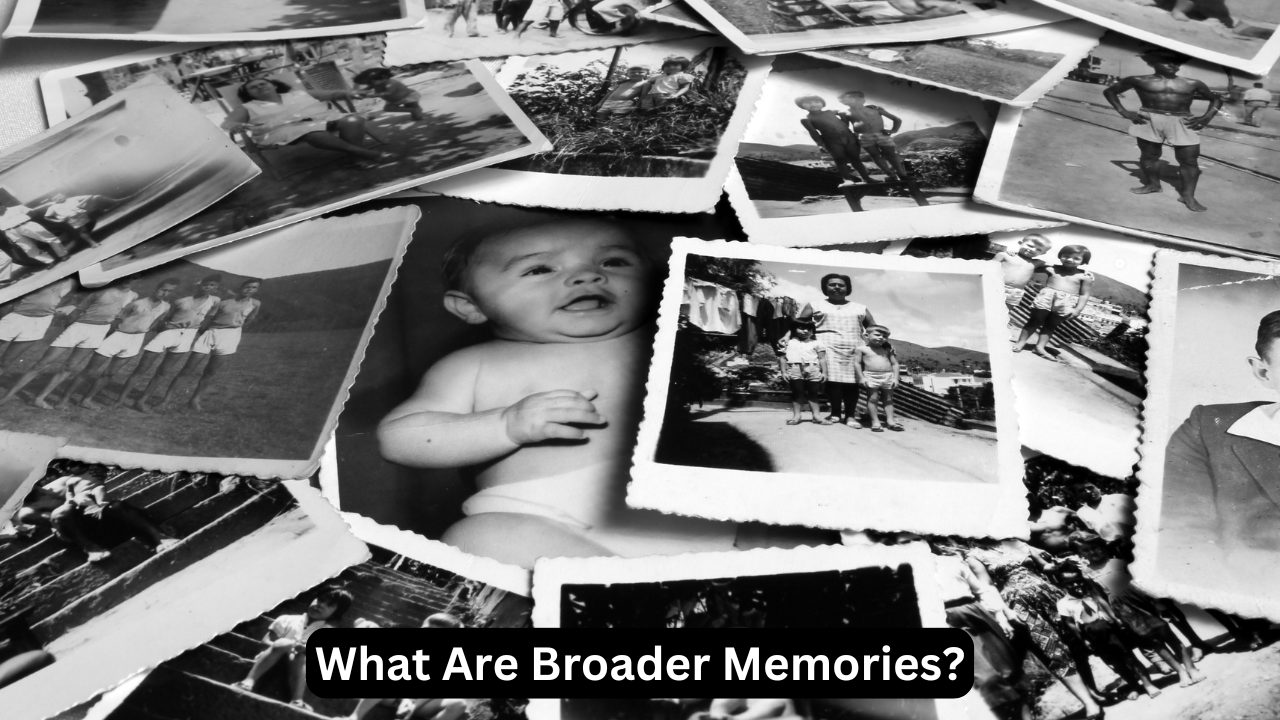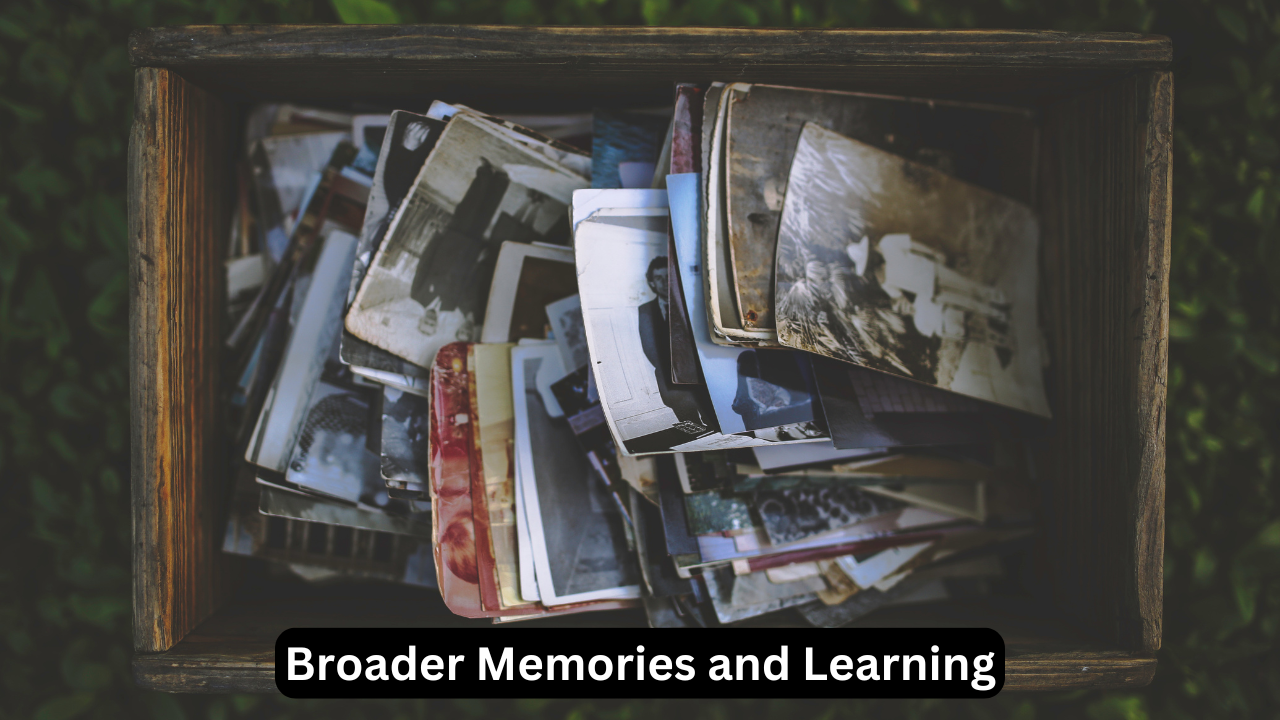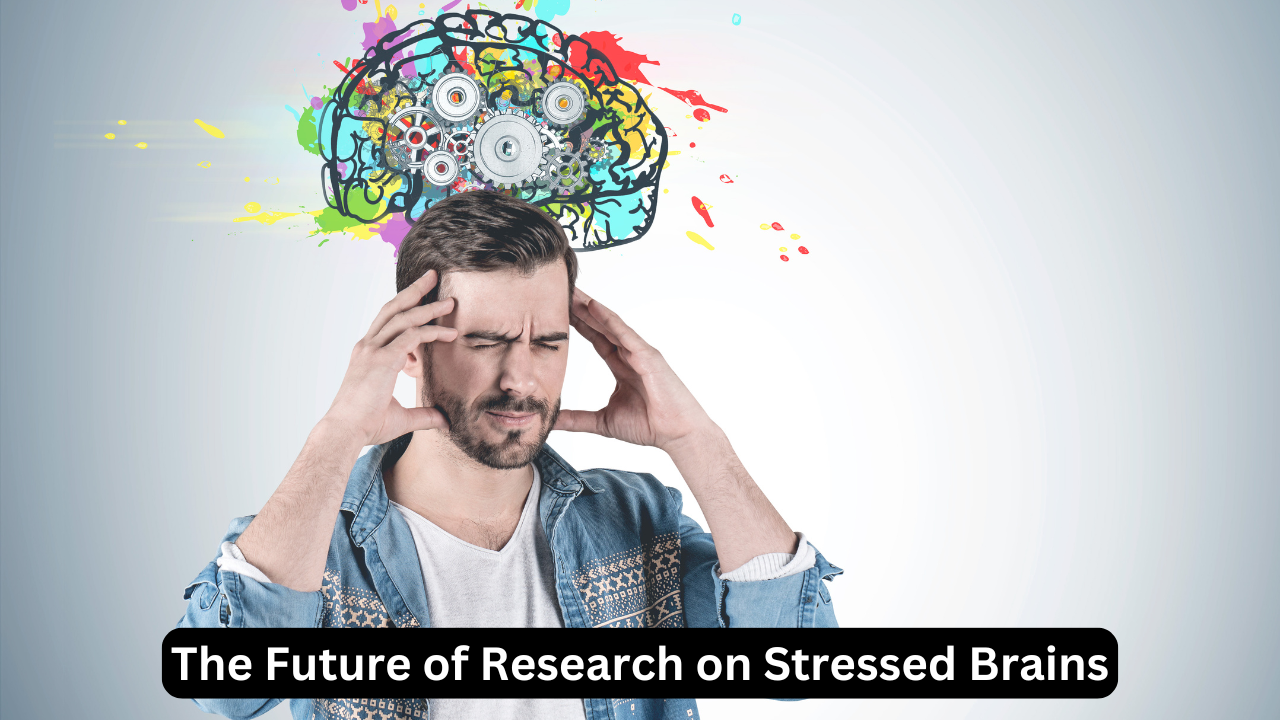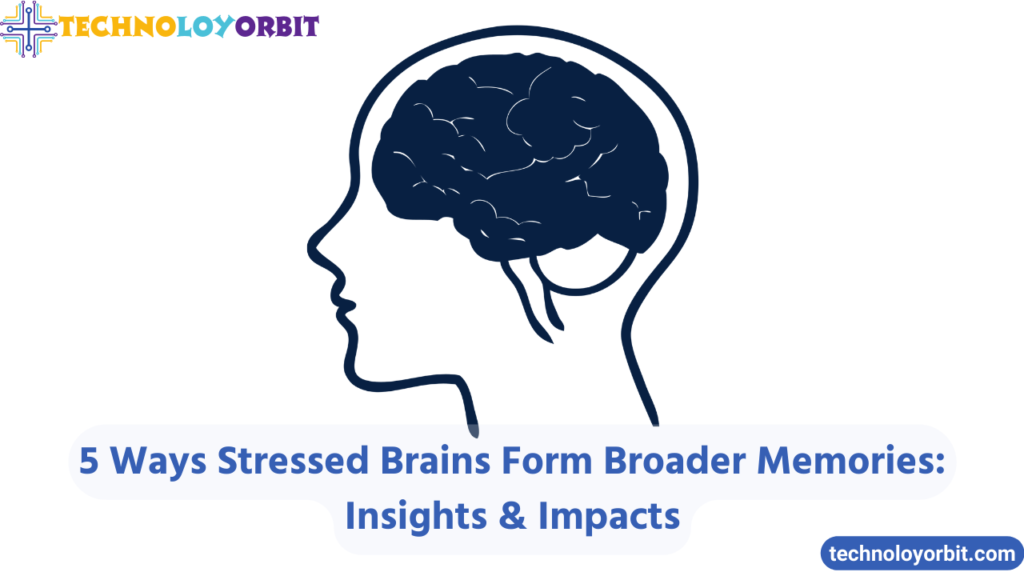Stressed Brains Form Broader Memories by encoding both key events and peripheral details, which can impact learning, decision-making, and emotional responses in stressful situations.
Stress is a universal experience, and its effects on the brain are profound. Recent research reveals that stressed brains form broader memories, meaning stress doesn’t just affect mood—it alters how we remember events. These findings hold implications for understanding mental health conditions, improving learning techniques, and even refining treatments for memory disorders.
When under stress, the brain’s mechanisms of memory formation expand, capturing not only the details of the stressful event but also broader contextual information. This article dives into the science behind this phenomenon, explores its implications, and offers insights into practical solutions.
How Stress Influences Memory Formation
Stress triggers the release of hormones like cortisol and adrenaline, which directly impact the hippocampus—a brain region critical for memory processing. When stress is present, the hippocampus doesn’t only encode specific details of an event; it also stores peripheral and seemingly unrelated details. This mechanism evolved to help humans anticipate threats, but it can also contribute to memory distortions in modern life.
What Are Broader Memories?

Broader memories refer to the brain’s tendency to store a wide array of information, even beyond the central event. For example, if someone experiences a car accident, they might remember not only the crash but also the weather, nearby buildings, or even unrelated conversations earlier that day. This memory broadening is thought to be the brain’s way of preparing for future, similar challenges.
Key Characteristics of Broader Memories
- Increased Contextual Details: Stress amplifies peripheral information retention.
- Enhanced Emotional Encoding: Stress links emotions to events, making them harder to forget.
- Association with Triggers: Stress memories are more likely to resurface when faced with similar situations.
The Science Behind Broader Memory Formation
Memory formation under stress involves several neural processes and hormones. Below is a breakdown of the primary contributors.
| Factor | Role in Memory Formation |
|---|---|
| Cortisol | Enhances memory consolidation but may impair recall. |
| Adrenaline | Strengthens emotional aspects of memories. |
| Hippocampus | Expands encoding capacity under stress. |
| Amygdala | Links stress to emotional intensity in memories. |
Real-Life Examples of Broader Memories
- Trauma Survivors: People with PTSD often report vivid recollections of not just the traumatic event but also seemingly insignificant details surrounding it.
- High-Stakes Learning: Students under stress during exams may remember the classroom setting, sounds, or other peripheral factors.
- Everyday Stress: Arguing with a friend might leave you remembering not just their words but also the coffee shop ambiance.
Problems Associated with Broader Memories
While broader memories can help with survival, they also present challenges:
1. Memory Overload
Too much information encoded during stress can lead to difficulty distinguishing important details from irrelevant ones.
Solution: Mindfulness techniques can help filter out unnecessary associations.
2. Emotional Distress
Stressful events stored with emotional intensity may lead to anxiety and fear responses when triggered.
Solution: Cognitive Behavioral Therapy (CBT) can reframe distressing memories.
3. Impaired Decision-Making
Broader memories can confuse judgment by overwhelming individuals with contextual details.
Solution: Grounding exercises and journaling can improve focus on relevant factors.
Broader Memories and Learning

Interestingly, broader memories can enhance learning in certain contexts. When the brain encodes a wide array of details, it increases the likelihood of connecting concepts and fostering creative problem-solving.
Practical Applications in Education
- Interactive Learning: Simulating real-world stress can improve knowledge retention.
- Memory Cues: Using vivid emotional triggers may aid in memorizing complex topics.
Mental Health Implications of Broader Memories
The connection between stress and memory broadening has significant implications for mental health conditions, including PTSD, anxiety, and depression.
1. PTSD
Individuals with PTSD are particularly prone to intrusive broader memories, often triggered by subtle stimuli.
Solution: Therapies like Eye Movement Desensitization and Reprocessing (EMDR) can help reduce the emotional charge of these memories.
2. Anxiety
Broader memories can amplify worries by making individuals hyper-aware of past stressful contexts.
Solution: Exposure therapy and relaxation techniques can desensitize stress responses.
How to Harness the Benefits of Broader Memories
- Practice Stress Management: Reducing cortisol levels through regular exercise and meditation helps control memory broadening.
- Engage in Reflective Practices: Journaling allows for sorting through broader memories, identifying useful insights, and discarding distractions.
- Utilize Memory Aids: Tools like mind maps or flashcards can anchor key details amidst broader memory frameworks.
The Future of Research on Stressed Brains

Advances in neuroscience may uncover how to precisely control memory broadening, potentially improving mental health outcomes and cognitive performance. For example:
- Memory Editing Technologies: Experimental techniques could selectively erase or dampen stressful memories.
- Pharmacological Interventions: Drugs targeting cortisol or adrenaline might fine-tune memory broadening effects.
FAQs About Stressed Brains and Broader Memories
Q1: What causes stressed brains to form broader memories?
Stress hormones like cortisol and adrenaline heighten the brain’s memory encoding capacity, leading to broader contextual information retention.
Q2: Are broader memories always harmful?
No, broader memories can enhance learning and problem-solving, but they may also contribute to anxiety or PTSD in some cases.
Q3: How can I reduce stress-related memory overload?
Practices like mindfulness, deep breathing, and journaling can help organize and filter stressful memories.
Q4: Can broader memories improve learning?
Yes, broader memories can help connect concepts, enhancing creativity and problem-solving.
Q5: What treatments exist for broader memory-related PTSD?
Therapies like CBT and EMDR are effective for managing intrusive broader memories in PTSD.
Q6: How does cortisol affect memory?
Cortisol improves memory consolidation but can impair memory retrieval if levels are excessively high.
Q7: Are children more prone to broader memories under stress?
Yes, children’s developing brains may encode more peripheral details during stress, making them susceptible to memory distortions.
Q8: What role does the hippocampus play in stressed memory formation?
The hippocampus encodes and stores both central and peripheral details of stressful events, influencing broader memory formation.
Conclusion
Understanding how stressed brains form broader memories opens up new avenues for improving mental health, enhancing education, and refining stress management techniques. While broader memories have both benefits and drawbacks, harnessing their potential requires strategic interventions and mindful practices. Continued research will further illuminate the complexities of this fascinating brain function, paving the way for innovative solutions. Please follow out blog Technoloyorbit.



